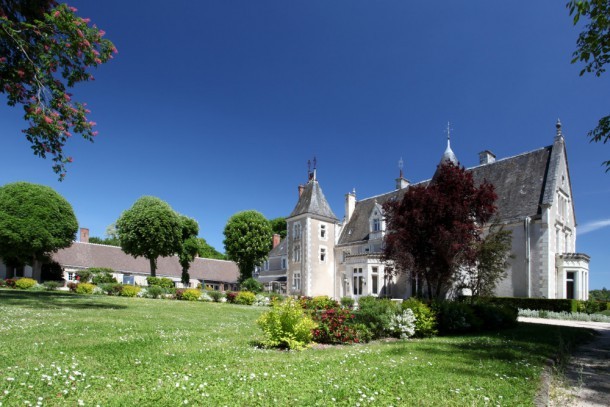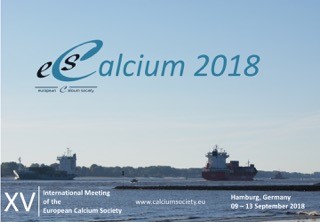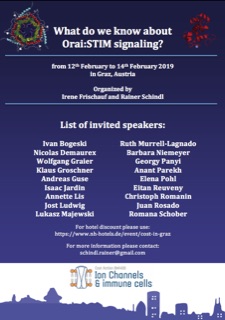BMBS COST Action BM1406
Ion Channels and Immune Response toward a global understanding of immune cell physiology and for new therapeutic approaches (IONCHAN-IMMUNRESPON)
The function of ion channels in immune cells is an emerging field of great basic science and clinical interest because they provide powerful molecular targets to modulate immune cell function. The Ionchan-Immunrespon network is a novel and exciting enterprise that involves internationally recognised scientists across 15 European countries. The specific aims are i) to develop a strong European workforce to understand the role of ion channels in immune cells, and how deregulation of their function can cause disease, ii) to identify new targets for therapeutic immuno-interventions through modulation of ion channels. Our unique combination of biophysical approaches combined with molecular biology, cell biology and immunology provides a powerful approach for dissecting the functional cell biology of the immune system.
The Action therefore will strengthen academic research in Immunology within Europe and foster closer collaborations with drug and diagnostics development programs in industry.
ANNOUNCEMENT : the BM 1406 meeting from 9th Ocotber at 9:00 to 11th October at 12:00 in Seillac, France.

It’s my pleasure to announce the BM 1406 meeting from 9th Ocotber at 9:00 to 11th October at 12:00 in Seillac, France.
The Core committee has organized this meeting for all WG in a nice place promoting discussions and collaborative project maturations.
During the stay, extraordinary activities, meetings and conferences have been planned to enhance the collaborative “effect” of the COST. We will have a review on the H2020 projects by the European officer of Tours ‘University, Dr. Marine Alalinarde. The president of University of Tours, Prof. Ph. Vendrix will say few words in the diner on 9th October evening. The WGL will have planned a tremendous scientific program for all WG. Off course, a “Young researcher” session will welcome all young talents in the field.
The meeting will be in XVIII century’s chateau in the countryside of Tours in the Loire Valley. The accommodations and the meals will be organized in the chateau.
You will be in full boar for the all stay for 235 euros + Tourist taxes (+1.65 euros) which will be reimbursed by the COST (using the COST rules for calculation according accommodation and meals).
You could share a room with someone, please indicate this people as soon as you register. If you do not, we will give a random roommate. If you do not wish to share your room, you will pay an extrafee of 45 euros for whole stay (single room).
• You must also answer to the official Email invitation of the COST by clicking on the link and doing all as like each meeting for the reimbursement.
To go to this chateau, you must take a flight to Paris, France, next a train (SNCF) to Tours (1h), next a smaller train to Onzain (30 min).
Tours>Onzain
Onzain>Tours
Shuttles will be organized from the Onzain Station to the chateau for those would have informed the organizers on their travel parameters as requested.
I wish you all to be in Seillac and enjoy your science!!!
Kind recall of the COST rules; no invitation = no reimbursement, no boarding pass = no reimbursement, no direct flight= no reimbursement, etc…
Best regards,
Florence VELGE-ROUSSEL
Grant Holder
COST BM1406
Summer Training School (2018) BM1406 “Bioinformatics for Quantitative Genomics”
Venue: CNB-CSIC, Madrid, Spain
Dates: 3-6 july, 2018
Seats: Max. 15 students*
Contact: oliveros@cnb.csic.es
*Important: Students should bring their own laptop with, at least, 4 GB of RAM memory and a recent 64-bit operative system (Windows, Mac OS X or Linux). During the course, several software tools will be installed (administrative privileges will be necessary).
Course Description : The "Bioinformatics for Quantitative Genomics" training school to be organized in connection with COST BM1406 aims to introduce early career scientists and interested PIs into bioinformatics for effective analysis of high-throughput genomics and transcriptomics data. The case studies or examples in lectures will be presented in the context of ion channels in immune cells and/or cancer.
Day 1
09:30 - 10:00 Welcome and Presentation
Juan C. Oliveros, PhD. Centro Nacional de Biotecnología (CNB-CSIC). Bioinformatics for Genomics and Proteomics. Madrid, Spain
10:00 - 11:30 Basic commands and file formats
Juan A. García-Martín, PhD. Centro Nacional de Biotecnología (CNBCSIC). Bioinformatics for Genomics and Proteomics. Madrid, Spain
-COFFEE BREAK-
12:00 - 13:30 Introduction to R language
Juan A. García-Martín
-LUNCH-
15:30 - 17:00 Genomic alignment of short-reads
Rafael Torres-Pérez, MsC. Centro Nacional de Biotecnología (CNBCSIC). Bioinformatics for Genomics and Proteomics. Madrid, Spain
Day 2
09:30 - 11:30 RNA-seq: comparative analysis with biological replicates (PART I)
Juan C. Oliveros
-COFFEE BREAK-
12:00 - 13:30 RNA-seq: comparative analysis with biological replicates (PART II)
Juan C. Oliveros
-LUNCH-
15:30 - 17:00 Functional annotation of gene lists Summer
Rafael Torres-Pérez
Day 3
09:30 - 11:30 Clustering of gene expression profiles
Ozlen Konu, PhD. Bilkent University. Department of Molecular Biology and Genetics. Ankara, Turkey
-COFFEE BREAK-
12:00 - 13:30 Quantitative analysis of microRNAs
Ozlen Konu
-LUNCH-
Ozlen Konu, Ayse G. Keskus
Day 4
09:30 - 11:30 Bioinformatics for CRISPR-based projects
Juan C. Oliveros
-COFFEE BREAK-
12:00 - 13:30 General discussion and closing remarks
LINK (PROGRAM) https://drive.google.com/file/d/1veTdPvzn5lwrAlHxr8aKWi1zjG6HwYwn/view?usp=sharing
15th International Meeting of the European Calcium Society (ECS2018)

Dear colleagues and friends of the calcium community,
I am very happy to inform you that the 15th International Meeting of the European Calcium Society (ECS2018) will take place in Hamburg (Germany) from September 09 to 13, 2018.
REGISTRATION NOW OPEN on www.ecs2018.eu
DEADLINE JUNE 30!
The international scientific board of the meeting organized a very attractive program covering all aspects of calcium signaling and also significantly touches calcium binding proteins.
We are very happy that two eminent researchers in the calcium field, Barbara Ehrlich (Yale) and Indu Ambudkar (NIH), will give the Special lectures of this year’s ECS conference. Barbara Ehrlich will open the conference on Sunday September 09, while Indu Ambudkar will give the Berridge lecture on Wednesday, September 12.
The following Scientific sessions have been organized:
Calcium signaling in leukocytes (Chair Andreas Guse, Germany)
Intracellular Calcium-release channels: from structure-function to disease (Chair Geert Bultynck, Belgium)
The role of Calcium in cell motility (Chair Agnes Enyedi, Hungary)
Regulation of Calcium signaling by adenine nucleotides (Chair Christian Lohr, Germany)
Calcium and vesicle trafficking (Chair Stephen Moss, UK)
Calcium and/in amyotrophic lateral sclerosis (Chair Roland Pochet, Belgium)
Relevance of Calcium signaling for metabolism (Chair Jörg Heeren, Germany)
The Stim-Orai Signalling interface (Chair Donald Gill, USA)
Calcium imaging and novel technologies (Chair Gary Bird, USA)
In addition, a Late breaking studies session chaired by Jan Parys (Leuven, Belgium) will include 3 talks to be selected from exciting new directions in calcium research in the next months.
Focus on Young Calcium Researchers: ECS feels increasingly comitted to the support of young researchers and wishes to attract young fellows to visit our conferences. Thus, the following program parts have been included:
- 18 slots for Short talks selected from submitted abstracts
- Poster Flash Symposium: approx. 15 quick oral poster presentations (each 3 min) to be selected from submitted abstracts
- two Poster parties to foster interaction between young and established researchers
- 10 junior travel fellowships
- “ROLAND POCHET” Poster awards
- DRABIKOWSKI award for the best young speaker
The ECS2018 website is already fully operational at www.ecs2018.eu , containing the program and many information to plan your journey to Hamburg.
Looking forward to seeing you and your lab members in Hamburg!
Best regards
Andreas Guse
(on behalf of ECS and the local organizing committee)
PS. Hamburg recently made it into the worldwide top 10 city destinations according to Lonely Planet (https://www.lonelyplanet.com/best-in-travel/cities).


